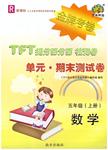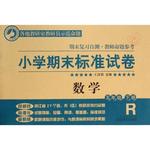题目内容
How often one hears children wishing they were grown-ups, and old people wishing they were young again. Each age has its pleasures and its pains(痛苦), and the happiest person is the one who enjoys what each age gives him without wasting his time in useless regrets(后悔).
Childhood is a time when there are few responsibilities(责任) to make life difficult. If a child has good parents, he is fed, looked after and loved, whatever he may do. It is impossible that he will ever again in his life be given so much without having to do anything in return. What’s more, life is always giving new things to the child--- things that have lost their interest for older people because they are too well-known. But a child has his pains: he is not so free to do what he wishes to do; he is repeatedly being told not do something or being punished for what he has wrongly done.
When a young man starts to earn his own living, he can no longer expect others to pay for his food, his clothes, and his room, but has to work if he wants to live comfortably. If he spends most of his time playing about in the way he used to as a child, he will go hungry. And if he breaks the laws of society(社会) as he used to break the laws of his parents, he may go to prison. If, however, he worked hard, keeps out of trouble and has good health, he can have the greatest happiness of building up for himself his own position(地位) in society.
【小题1】What is the happiest person according to the passage?
| A.A child who can do whatever he likes. |
| B.An old person who lives in a comfortable life. |
| C.A grown-up who no longer expects other to pay for him. |
| D.A person who never wastes his time in his whole life. |
| A.Life for a child is fairly easy. |
| B.A child is always loved whatever he does. |
| C.If much is given to a child, he must do something in return. |
| D.Only children are interested in life. |
| A.Life is not enjoyable since each age had some pains. |
| B.Young men can have the greatest happiness if they work hard. |
| C.Childhood is the most enjoyable time in one’s life. |
| D.One is the happiest if he can make good use of each age in his life. |
| A.Examples of successful young men. |
| B.How to build up one’s position in society. |
| C.Joys and pains of old people. |
| D.What to do when one has problems in life. |
【小题1】D
【小题2】B
【小题3】D
【小题4】C
解析试题分析:这篇文章讲述了人生中的每个年龄段都会有幸福和痛苦,如果一个人能充分利用他人生中的每一个年龄段,他就会是最幸福的。
【小题1】细节题。根据文章the happiest person is the one who enjoys what each age gives him without wasting his time in useless regrets(后悔).可知,在一个人整个生命中,从来都不浪费时间的人是最幸福的。故选D
【小题2】细节题。根据文章第二段可知,一个孩子,无论他做什么,父母都会爱他的。故选B
【小题3】主旨题。根据文章内容可知,一个人如果能充分利用他人生中的每一个年龄段,他就会是最幸福的。故选D
【小题4】推断题。根据文章第一段概括的说人生中的每个年龄段都会有幸福和痛苦,第二段讲的是小孩的幸福与痛苦,第三段讲的是成年人的幸福与痛苦,由此可推断出,第四段应该是讲老年人的幸福与痛苦。故选C
考点:日常生活类议论文
点评:议论文的问题需要在全文理解的基础上把握好作者所表达的观点,本文文章主旨鲜明,题目设置多为细节题。对于推断题,要求学生在把握文意的基础上对文章进行综合的分析,对于细节题是很好解答的题目,而主旨题要在概括性的段落中寻找答案。细节题在文章题目中找到关键字在文章中找到对应的出处,再仔细对比得出正确的答案。

 提分百分百检测卷单元期末测试卷系列答案
提分百分百检测卷单元期末测试卷系列答案 小学期末标准试卷系列答案
小学期末标准试卷系列答案---_____ will you be in Guangzhou?
---I am going to leave for Beijing in two months’ time.
|
A.How soon |
B.How far |
C.How often |
D.How long |
从B栏中找出与A栏相对应的答语。(5分)
|
A |
B |
|
1.How often do you watch TV? 2.How do you get to school? 3.What’s the matter? 4.What are you doing for vacation? 5. Can you come to my party? |
A. I’m going camping. B. Sure, I’d love to. C. Three or four times a week D. I usually walk. E. I have a cold. |